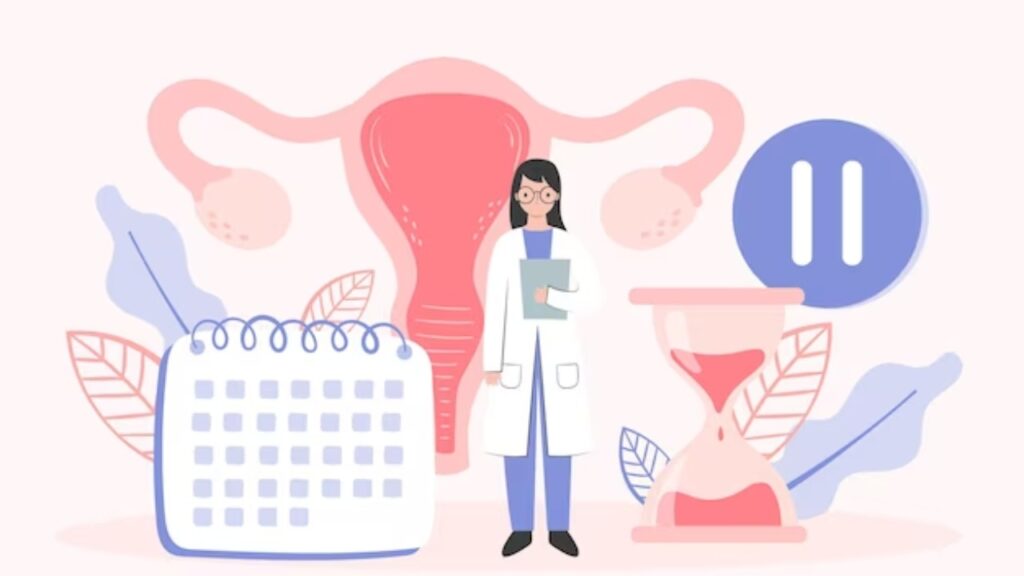Menopause Clinic – The Multidisciplinary approach to women’s health care

Menopause is a big life transition that women experience as they get older. A woman’s entire wellbeing may be impacted by the physical and emotional changes brought on by menopause. Ahalia Women and Children’s Hospital has established a Menopause Clinic that provides a multidisciplinary approach to women’s health care in recognition of the special requirements of women during this period of life.
The significance of such a clinic and how it attends to the various requirements of women undergoing menopause will be discussed in this blog.
Tests are often not required to identify menopause. However, in some cases, your doctor could advise blood tests to measure your levels of
- Follicle-stimulating hormone (FSH) and estrogen (estradiol), because your FSH levels increase and estradiol levels decrease as menopause occurs
- Thyroid-stimulating hormone (TSH), because an underactive thyroid (hypothyroidism) can cause symptoms similar to those of menopause
Understanding PCOS
When a woman stops having menstrual cycles, a natural process called menopause sets in. A woman is often diagnosed after missing her period for a full 12 months. During this stage, estrogen and progesterone levels in women’s bodies fall, which causes a variety of symptoms like hot flashes, mood swings, sleep issues, vaginal dryness, and more.
The Multidisciplinary Approach
The Menopause Clinic at Ahalia Women and Children’s Hospital approaches the difficulties women encounter throughout menopause from a broad, multidisciplinary perspective. In order to provide holistic care, a group of medical experts from several areas, including gynaecology, endocrinology, psychiatry, nutrition, and physical therapy, collaborate.
- Gynaecology :
The core of the Menopause Clinic is its gynecological expertise. Gynaecologists are essential in identifying and treating menopausal symptoms, addressing worries about hormonal changes, and, if necessary, giving the necessary medical therapies, such as hormone replacement therapy. The overall health of women during this stage is also monitored by routine examinations and screenings.
- Endocrinology:
As menopause is primarily driven by hormonal changes, the expertise of endocrinologists becomes crucial.To reduce symptoms and enhance overall hormonal health, they assess hormone levels, spot imbalances, and develop individualized treatment regimens. Endocrinologists work together with gynaecologists to provide thorough care that is tailored to the individual requirements of each patient.
- Psychology:
It is important to consider how menopausal women are feeling emotionally and psychologically. The Menopause Clinic provides counseling services to help women deal with anxiety, sadness, mood swings, and other related problems because it recognizes the influence of hormonal changes on mental health.
- Nutrition:
The menopause alters the body’s metabolism, composition, and dietary needs. At the Menopause Clinic, nutritionists or dieticians offer advice on healthy eating practices, weight control, and the significance of particular nutrients to support women’s bone health, heart health, and general wellbeing throughout this period of life.
- Physical therapy:
Menopausal women may experience physical difficulties such as joint discomfort, decreased bone density, and weakened muscles. To increase flexibility, strength, and posture, physical therapists provide rehabilitation exercises and programs. They also utilize specialized methods and treatments to address urine incontinence problems, which are a typical worry throughout menopause.
A major focus of the menopause clinic at Ahalia Women and Children’s Hospital, Palakkad, is patient-centered care. The interdisciplinary team works together to create individualized treatment regimens that take into account the particular symptoms, medical background, and preferences of each woman. Women are guaranteed to receive the best care possible that is catered to their specific requirements according to our patient-centered approach.
The Menopause Clinic is dedicated to empowering women with education and information about menopause in addition to offering medical care. It offers workshops, support groups, and educational sessions so that women can understand more about the changes they are going through.
